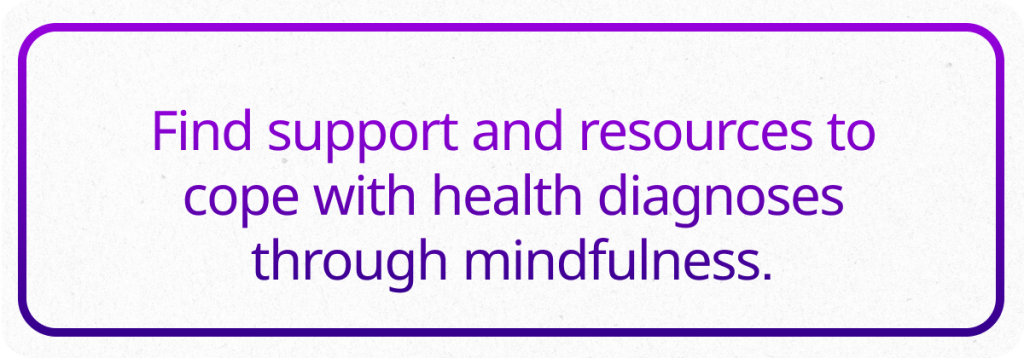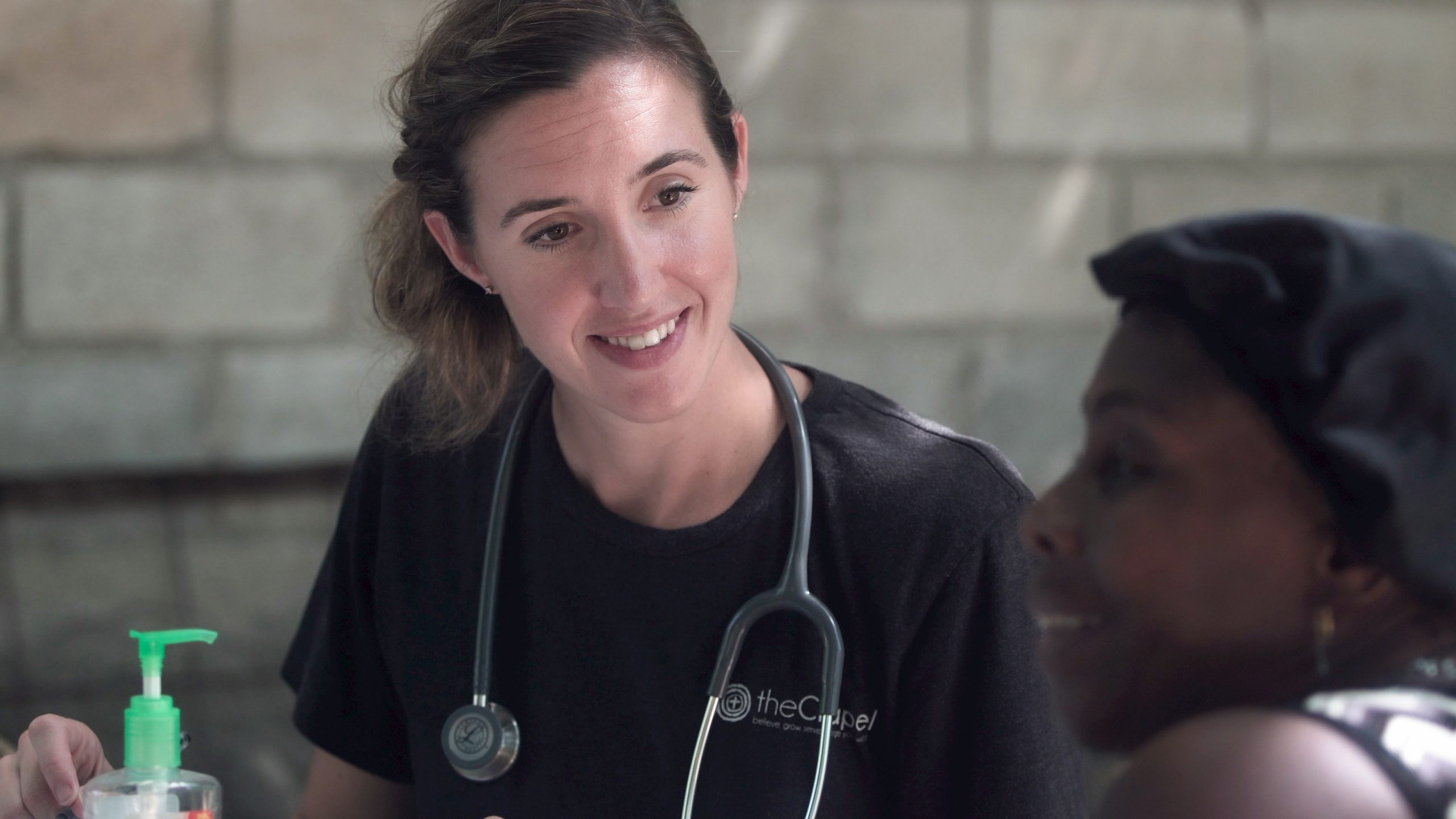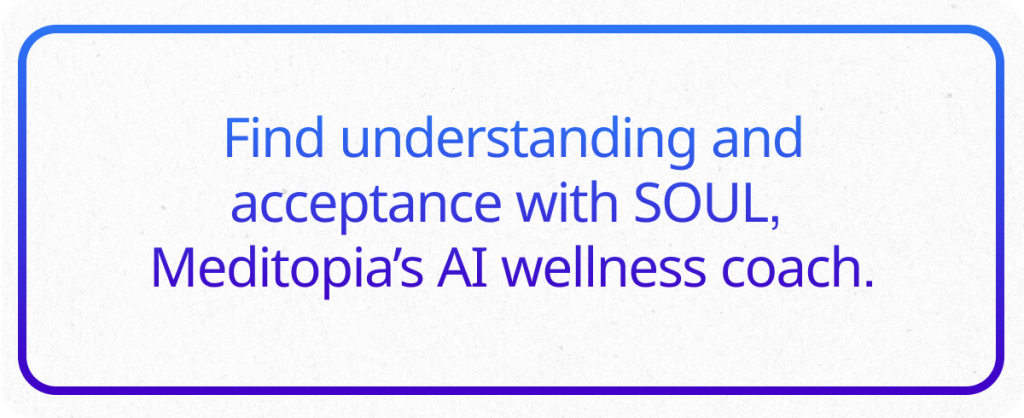Coping With Cancer: Using Mindfulness As a Coping Tool

Table of contents
Coping with cancer is a journey. One fraught with physical discomfort and emotional turbulence, where each step can feel incredibly challenging for the person with the diagnosis, their friends, and family.
We understand the overwhelming anxiety, stress, and fear that often accompany this journey. Yet, even in the face of such adversity, there’s a resource that can support them all: mindfulness.
In this article, we want to shed light on the profound ways mindfulness can help alleviate the emotional burdens that cancer places upon you and your loved ones. From reducing the weight of anxiety and depression to enhancing your overall well-being, mindfulness offers a transformative approach to facing the challenges of this disease.
We invite you to explore how the practice of mindfulness becomes a compassionate companion for those navigating the complexities of coping with cancer, offering solace, and resilience.

Understanding the Emotional Impact of Cancer
A cancer diagnosis is both a physical battle and an emotional and psychological journey. Let’s explore the emotional impact of cancer.
The Emotional Challenges Cancer Patients Face
Cancer patients grapple with an array of complex emotions. The initial diagnosis can unleash a wave of shock, fear, and disbelief. Followed by a sense of vulnerability that’s hard to put into words. As treatments commence, there’s often an overwhelming feeling of uncertainty – about the outcome, the side effects, and the impact on one’s life.
The physical symptoms and discomfort only serve to exacerbate emotional distress.
Loneliness is a frequent companion on this journey, as patients may struggle to communicate the depths of their pain and fear to loved ones. The weight of guilt and anxiety can bear down heavily, especially if patients feel they’re burdening their families with their illness.
The fear of mortality, the loss of control, and the erosion of self-esteem are emotional battles that often remain unspoken.

The Importance of Addressing Emotional Well-being
In recognizing the emotional challenges that cancer patients face, it becomes evident that addressing emotional well-being is not a luxury but a necessity. The emotional toll of cancer is as real and significant as its physical effects, and it can profoundly impact one’s quality of life.
Prioritizing emotional well-being offers numerous benefits. It can foster a sense of resilience, helping patients better navigate the ups and downs of their cancer journey. It can improve overall mental health, making it easier to cope with treatment-related stress and anxiety.
Furthermore, by acknowledging and addressing their emotional struggles, patients can find ways to seek support and solace, both from within and through external resources.
While mindfulness is not presented here as a panacea for cancer, it is essential to understand that emotional well-being is a vital aspect of the cancer experience. Recognizing and validating the emotional challenges cancer patients face lays the groundwork for a more holistic approach to cancer care, one that encompasses both the physical and emotional aspects of this arduous journey.
What is Mindfulness?
As we embark on our exploration of mindfulness and its role in the context of coping with cancer, it’s crucial to start with a fundamental understanding of what mindfulness is and where it comes from.
At its core, mindfulness is a mental state characterized by focused awareness and presence in the present moment. It involves intentionally paying attention to thoughts, feelings, bodily sensations, and the surrounding environment without judgment.
Mindfulness encourages us to acknowledge our thoughts and feelings without reacting impulsively, providing a fresh perspective on how we interact with the world around us. It is not about eliminating negative emotions or thoughts; instead, it’s about developing a compassionate and non-judgmental relationship with them.

The Science Behind Mindfulness
Mindfulness isn’t merely a philosophical or spiritual concept; it has a solid foundation in scientific research. Neuroscientists have delved into the study of the brain’s response to mindfulness practices and have made remarkable discoveries. Brain imaging studies have shown that regular mindfulness meditation can lead to changes in brain structure and function, particularly in areas associated with attention, self-awareness, and emotional regulation.
Furthermore, numerous clinical studies have demonstrated the effectiveness of mindfulness in reducing stress, anxiety, and depression, enhancing overall well-being, and improving the quality of life for individuals facing various challenges, including cancer.
It’s important to recognize that mindfulness is not a magical cure for coping with cancer, but a well-studied and evidence-based practice that holds promise in helping individuals cope with life’s difficulties, including the emotional toll of illnesses like this one.

Mindfulness Techniques for Coping with Cancer
Now that we have laid the foundation by understanding mindfulness, let’s dive into practical mindfulness techniques that can be particularly valuable for those navigating the challenges of cancer.
Mindful Breathing
Mindful breathing is a simple yet potent technique that can be done anywhere, anytime. Here’s how to get started:
– Find a quiet and comfortable space to sit or lie down.
– Close your eyes and take a few deep breaths to settle in.
– Shift your focus to your breath, either at your nostrils, chest, or abdomen.
– Pay attention to the sensation of each inhale and exhale, without trying to change or control your breath.
– When your mind wanders (as it inevitably will), gently bring your attention back to your breath.
– Start with short sessions and gradually extend the duration as you become more comfortable with the practice.
If you’re interested in breathing exercises to cope with cancer, read our blog on diaphragmatic breathing. If you would like to try a breathing exercise right now, check out our video on the 4-4-4-4 breathing technique.
Body Scan Meditation
Cancer treatments and their side effects can cause physical discomfort and pain. Body scan meditation is a technique that can help individuals connect with their bodies and manage physical sensations more effectively. By systematically scanning and relaxing each part of the body, it promotes relaxation and can alleviate some physical discomfort.
- Find a quiet and comfortable place to lie down.
- Close your eyes and take a few deep breaths to relax.
- Begin at the top of your head and slowly move your attention down through your body, part by part.
- As you focus on each body part, notice any tension or discomfort. Breathe into that area and imagine releasing the tension with each exhale.
- Continue this process, moving down through your neck, shoulders, arms, chest, abdomen, hips, legs, and all the way to your toes.
- Take your time, and remember to breathe deeply and mindfully throughout the exercise.
Mindful Acceptance
Cancer can evoke a wide range of emotions, from fear and anger to sadness and uncertainty. Mindful acceptance encourages individuals to acknowledge and embrace these emotions without judgment or resistance. It’s about allowing oneself to feel what they are feeling, and recognizing that these emotions are valid and a natural part of the journey.
- Start by setting aside a few moments each day to check in with your emotions.
- Sit quietly and focus on your breath, allowing your emotions to surface without pushing them away.
- Label your emotions without judgment. For example, say to yourself, “I am feeling anxious,” or “I am feeling sad.”
- Practice self-compassion by offering kind and gentle words to yourself, just as you would to a friend facing similar emotions.
Remember that acceptance doesn’t mean resignation; it means acknowledging your feelings and allowing them to exist while still taking positive steps toward healing and well-being.
Mindfulness for Caregivers and Loved Ones
While mindfulness is undoubtedly a potent resource for cancer patients themselves, its benefits extend beyond the individual who is directly facing the diagnosis. Caregivers and loved ones who provide unwavering support can also find solace and resilience through the practice of mindfulness.
The Role of Mindfulness in Supporting Caregivers
Caregivers often shoulder a tremendous emotional and physical burden while caring for their loved ones battling cancer. The emotional toll can be overwhelming, as they witness the pain and suffering of their dear ones while managing their own fears and anxieties. This is where mindfulness can play a transformative role.
Feel free to access our mindfulness program “Being a Caregiver.” Download Meditopia, search for it in the app, and get in touch with the mindful side of your duty.
Mindfulness empowers caregivers to:
- Enhance emotional resilience
- Reduce burnout
- Improve communication
- Protect their self-care practices
- Gain an understanding of their own emotions, needs, and boundaries.

Tips for Incorporating Mindfulness into Caregiving
Integrating mindfulness into the caregiving journey doesn’t have to be complicated. Here are some practical tips to help caregivers incorporate mindfulness into their daily lives:
- Set Aside “Me” Time: Dedicate a few minutes each day to practice mindfulness. Whether it’s through meditation, mindful breathing, or simply a moment of reflection, this personal time can help caregivers recharge and center themselves.
- Practice Self-Compassion: Mindfulness encourages self-compassion, reminding caregivers that it’s okay to care for themselves and seek support when needed.
- Mindful Listening: When communicating with their loved ones, caregivers can practice mindful listening by giving their full attention, without interrupting or judging. This fosters trust and empathy.
- Mindful Breaks: Throughout the day, take short mindful breaks to check in with your emotions and physical sensations. This can help you stay present and reduce stress.
- Support Groups: Consider joining a caregiver support group that incorporates mindfulness practices. Sharing experiences and techniques with others in a similar situation can be incredibly empowering.
Final Thoughts
By grounding ourselves in the present moment, we open the door to a profound connection with our own emotions, thoughts, and sensations. We learn to accept, without judgment, the struggles and uncertainties that coping with cancer brings into our lives. Through mindful practices like breathing, body scans, and acceptance, we find the strength to endure, support, and heal.
As you embark on your own journey, whether as a cancer patient or a caregiver, remember that mindfulness is a practice, not a destination. It’s a companion that walks alongside you, offering solace and insight when you need it most. With time, patience, and compassion, mindfulness can become an integral part of your coping toolbox.

